Pope Francis: the man he was
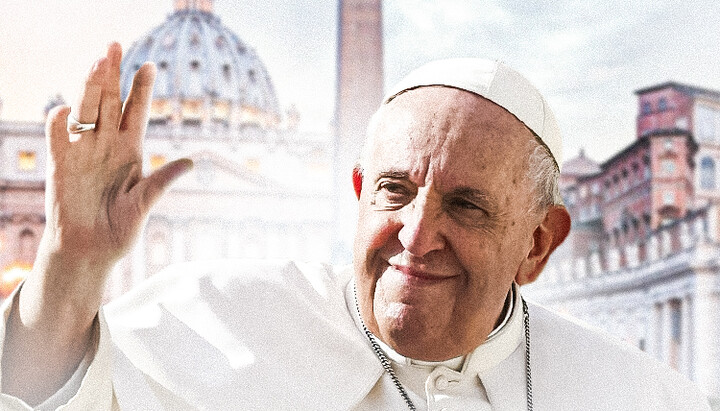
Pope Francis has passed away. Only God and history can ultimately judge his life and work. Let's recall the main features of his pontificate, most important for us.
On Bright Monday, April 21, 2025, Pope Francis passed away. The death of any person—and especially someone who influenced the lives of millions – is an occasion to step away from the cycle of worldly concerns and reflect on the eternal. It is a time to be reverently awed by the mystery of death and to wish the newly departed God's mercy.
Pope Francis, known before his pontificate as Jorge Mario Bergoglio, is an Argentinian of Italian descent. He was born in Buenos Aires in 1936, where he graduated from the seminary and St. Joseph's College there. At the age of 22, he joined the Jesuit order. He worked as a teacher in various Catholic educational institutions. In 1992, he became the vicar bishop of Buenos Aires, and in 1998, its ruling bishop. In 2001, Bergoglio received the Cardinal’s officium and was appointed to several positions in various Vatican commissions and congregations.
In 2005, after the death of Pope John Paul II, he was considered one of the main candidates for the papal Throne. However, at that time, Joseph Alois Ratzinger was elected pope, taking the name Benedict XVI. Ratzinger abdicated in 2013, and this time, Bergoglio became pope.
From the very beginning of his pontificate, Pope Francis impressed the world with his uncommon modesty and conspicuous simplicity. He refused the luxurious apartments in the Apostolic Palace and chose instead to live in a modest room at the Saint Martha House. He paid for his lodging during trips and wore a plain white cassock without red velvet or gold embellishments. He got around in a modest automobile, having previously used buses before becoming pope. His actions were genuine, and people felt it. Millions saw in him an almost ideal image of a Christian shepherd.
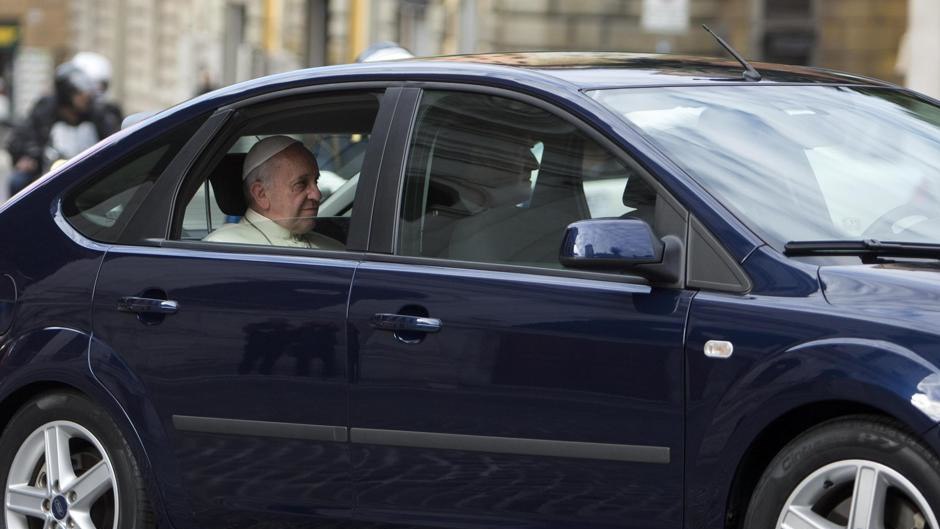
Pope Francis often spoke about social justice, believing that the Catholic Church should be more actively involved in addressing social issues. He repeatedly criticised the “dictatorship of the economy” and the cult of consumerism. He favored the poor, migrants, the homeless, and others in need. In 2015, he washed the feet of Italian prison inmates; a year later, he did the same for migrants. And in 2019, he kissed the feet of South Sudanese leaders.
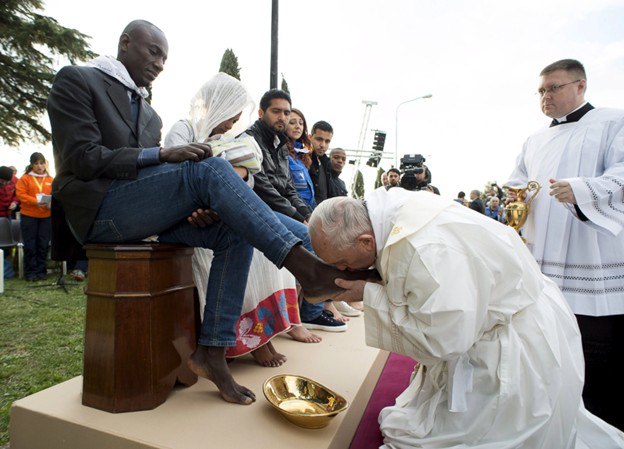
However, for Ukraine and Orthodox believers, in our view, the following four aspects of Pope Francis’s church policy are the most important.
Ecumenism
Pope Francis made ecumenism (in its broadest form) one of the priorities of his policy from the early years of his papacy. This was most vividly and consistently manifested in relations with the Orthodox Church, especially with the Patriarchate of Constantinople.
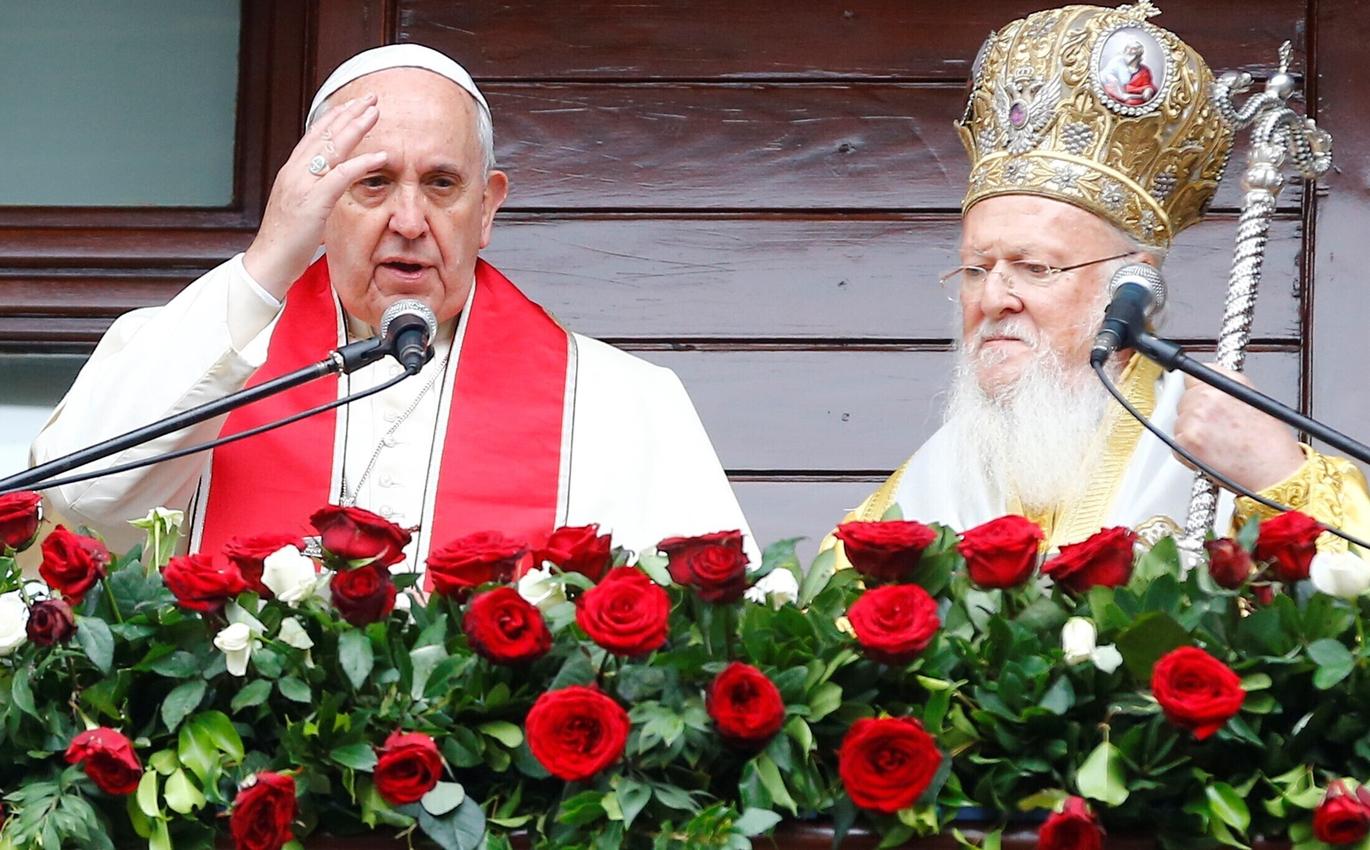
There are many photographs of the pope and Patriarch Bartholomew captured during joint prayers (which is strictly prohibited by canon law). Unity with the Patriarchate of Constantinople was a dream of Pope Francis, as well as of Patriarch Bartholomew. He repeatedly expressed his desire for this and noted that the goal of the Vatican is "full unity", based on the recognition and respect of different charisms and traditions. Here are just a few of the pontiff's statements on this topic:
· "When the Churches are fully united in faith and love, the form in which the Bishop of Rome will exercise his service of communion in the Church at the universal level will have to be the result of an inseparable relationship between primacy and synodality";
· "Unity is harmony in the diversity of gifts given by the Spirit";
· "By journeying together, working together and praying together, we prepare ourselves to receive from God the gift of unity that, as a fruit of the Holy Spirit, will be a communion and harmony in legitimate diversity";
· "Unity does not come about by standing still, but by moving forward with the new energy that the Spirit, from the day of Pentecost."
In 2016, Pope Francis became the first pontiff to meet the Patriarch of Moscow. That meeting resulted in the signing of the Havana Declaration, which was framed in an ecumenical spirit.
However, Bergoglio’s ecumenism extended far beyond Orthodoxy or even Christianity. He developed dialogue with Muslims and Jews, visited mosques and synagogues, and prayed with representatives of other religions. The most striking example of this was the Pachamama prayer ritual, held in the Vatican in 2018 in the presence of Pope Francis and a Peruvian priestess.
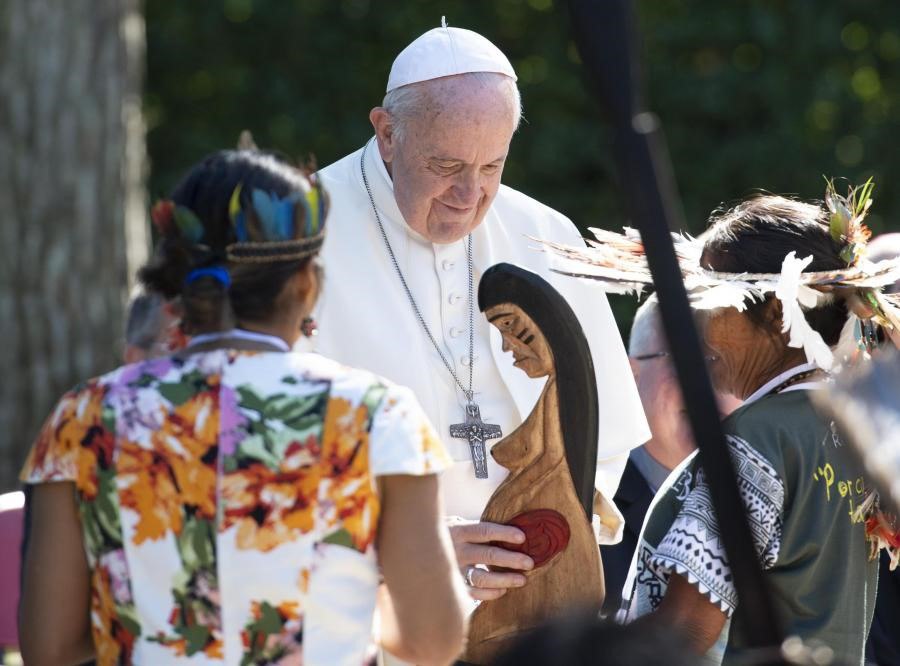
In the Vatican, this act was referred to as the "catechization" of a pagan deity.
Liberal agenda
From the very beginning of his pontificate, Pope Francis has pursued a consistent policy of liberalization. This is done under the slogan, which can be summarized as: less dogma and formalism, more mercy and social justice.
“The Church is not a court, but a field hospital, called to help people, not to push them away”—this idea has been repeatedly voiced by Bergoglio in various forms. The Pope promoted a liberal agenda not only within the Church but also in politics, economics, and the social sphere. He frequently spoke about ecology, strongly criticized capitalism, and condemned the exploitation of people. Pope Francis’s liberalism was especially evident in the issue of migration. He called for accepting as many migrants as possible, regardless of whether their migration was legal or not, and despite the rising crime rates in Europe as a result. Here are a few examples:
· "Driving away migrants is a grave sin";
· "It's hypocrisy to call yourself a Christian and chase away a refugee or someone seeking help";
· "It's hypocrisy to call yourself a Christian and chase away a refugee or someone seeking help."
In 2021, Pope Francis officially opened access to the ministries of acolyte and lector to women, which had previously been considered an exclusively male function. In 2022, he issued the document Praedicate Evangelium, which approved a large-scale reform of the Roman Curia, equalizing the rights of laypeople and clergy to hold high positions, including women.
In 2021, Pope Francis announced the beginning of a process called the "Synodal Path." He stated that the main goal of this process is "to create a church open to novelty."
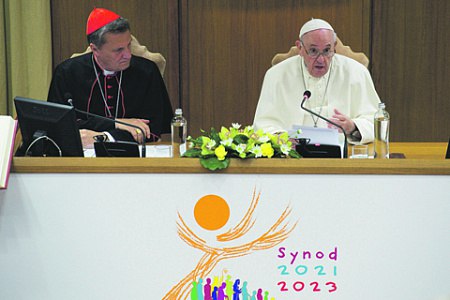
The essence of this process was that, in preparation for the Synod of the Catholic Church (the central level), which was scheduled to take place in 2023, two preparatory levels had to be held: the local and continental (regional) levels. Catholic structures in various countries were called upon to present their proposals for the reform of the Roman Catholic Church. The events of the "Synodal Path" in different countries were often accompanied by scandals. For example, in France, the issue of pedophilia surfaced: a report by the Independent Commission on Sexual Abuse in the Church (CIASE) revealed the scale of abuse of minors, stating that between 1950 and 2020, at least 216,000 children aged 10 to 13 had been victims of Catholic priests who were pedophiles. The leadership of the Catholic Church was accused of criminal indifference and of covering up the problem.
The Synodal Path Assembly in Germany proposed very radical reforms for the Church:
· to make the Church’s governance more democratic and less centralized;
· to recognize gay marriages and change the church's teaching on LGBT issues;
· to abolish mandatory celibacy for the clergy;
· to introduce women's priesthood.
Moreover, it was stated that if the Vatican does not accept these proposals, the Catholic Church in Germany may do so itself.
LGBT
The most striking aspect of Pope Francis's liberal policy is his overtly benevolent attitude towards LGBT community. Back in 2013, he stated: "If a person is gay and seeks God and has good will, who am I to judge?"
In 2016, the papal encyclical Amoris Laetitia (The Joy of Love) was published, which contained the liberalization of some rules regarding family and marriage.
In 2020, in the documentary film “Francesco”, Pope Francis expressed his support for civil unions for same-sex couples. “Homosexuals have a right to be a part of the family. They are children of God and have a right to a family […] What we need is a law on civil unions. That’s how I see it.” Although this was said not of Church teaching but of secular law, it was essentially the pontiff’s acknowledgement of the right for same-sex couples to live together in a legalized union.
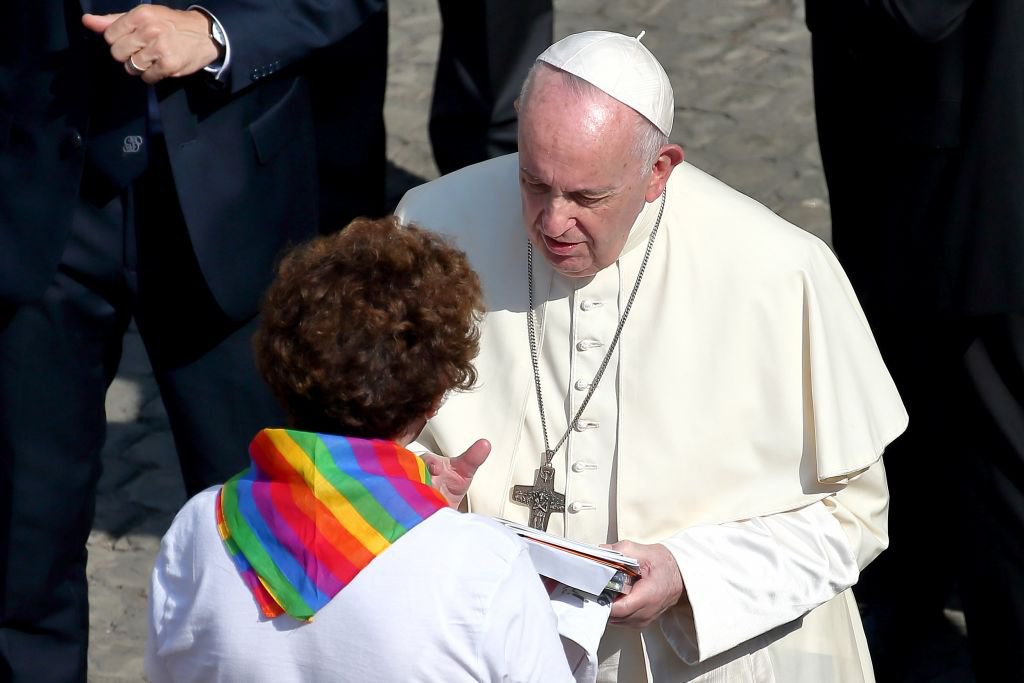
In 2023, the Pope officially authorized the blessing of same-sex couples in the document “Fiducia Supplicans”. Although it included a note that such blessings should not be given in the context of a marital union, many, including Catholic bishops, interpreted this precisely as a step toward recognition of same-sex marriage.
Attitude towards the war in Ukraine
Pope Francis repeatedly spoke about the war in Ukraine, expressing sympathy for the Ukrainian people, condemning violence, and calling for peace:
- “In Ukraine, rivers of blood and tears are flowing. This is not just a military operation but a war which sows death, destruction and misery.”
- “In the name of God, I ask you: stop this massacre!”
- “War is the defeat of humanity.”
- “We are always trying to wage war and respond to a blow with another blow. But to build a peaceful future, we must forgive each other. Always.”
- “Be patriots, but not enemies. Learn to forgive, reject war.”
However, Pope Francis never named Russia as the aggressor, never placed responsibility for starting the war on it, nor did he demand that it stop the invasion or shelling of Ukrainian cities. In fact, in May 2022, he even justified Russia’s actions by stating that the war had been provoked by “NATO barking at Russia’s door”, and he voiced criticism of arms supplies to Ukraine:
“I don’t know how to answer—I’m too far away—the question of whether it is right to supply the Ukrainians. The clear thing is that weapons are being tested there. This is why wars are waged: to test the weapons we have produced,” said Pope Francis.
The pontiff consistently tried to portray the war in Ukraine as a conflict between fraternal peoples. “They are brothers, cousins. Let them come to an understanding! War is always a defeat. Peace to the whole world!” he said during a Sunday prayer in December 2024.
In April 2022, the Vatican organized the first Via Crucis procession in Rome after the COVID pandemic, on Good Friday. The procession, traditionally led by the pontiff, featured a Ukrainian woman, Iryna, and a Russian woman, Albina, who carried the cross together.
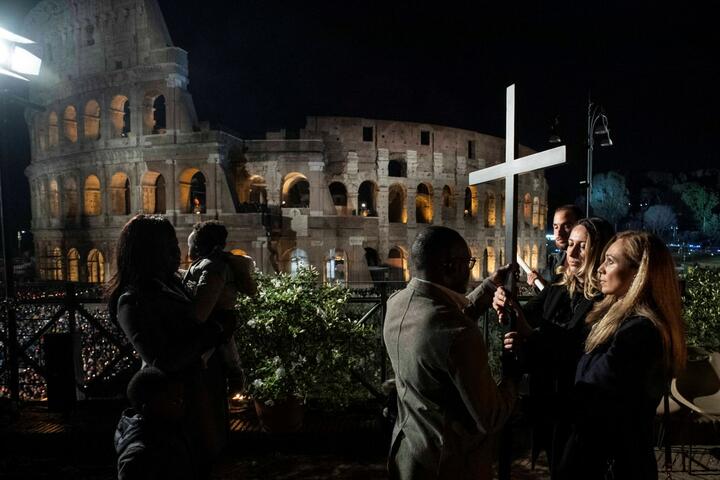
This sparked sharp criticism from Ukraine.
In March 2024, Pope Francis actually called on Ukraine to surrender and admit defeat in the war, stating: “Ukraine must have the courage of the white flag and negotiate.”
Afterword
There is no doubt that Pope Francis was an outstanding pontiff, unlike most of his predecessors. His words and actions were applauded by some and sharply criticized by others. The Pope was called a heretic, a traitor to the Catholic faith and at the same time a pastor open to people.
The main feature of his pontificate can be called liberalism, the desire to meet the demands of society, attempts to renew the RCC and make it open to the modern world.
All this caused a negative reaction from the conservative wing of the Catholic Church. Meanwhile, its liberal part, on the contrary, considered Pope Francis' liberalism insufficient. Now the main question will be whether the trends started by Bergoglio will continue in the Catholic Church, or whether the pendulum will swing the other way, leading to a restoration of conservatism.











